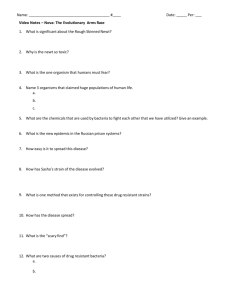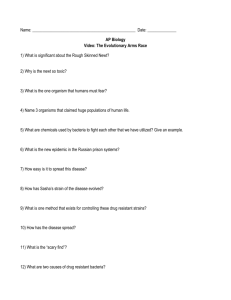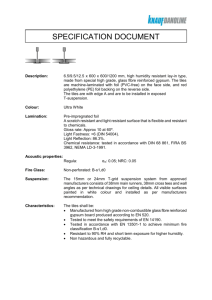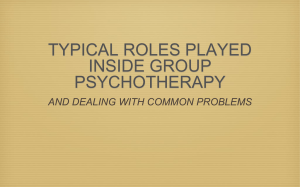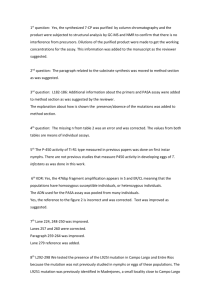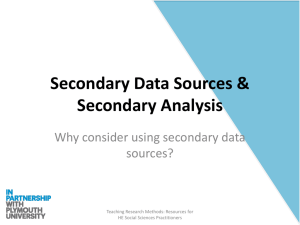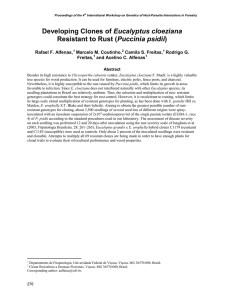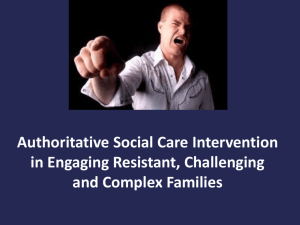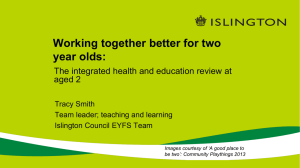Working with uncooperative or resistant families
advertisement
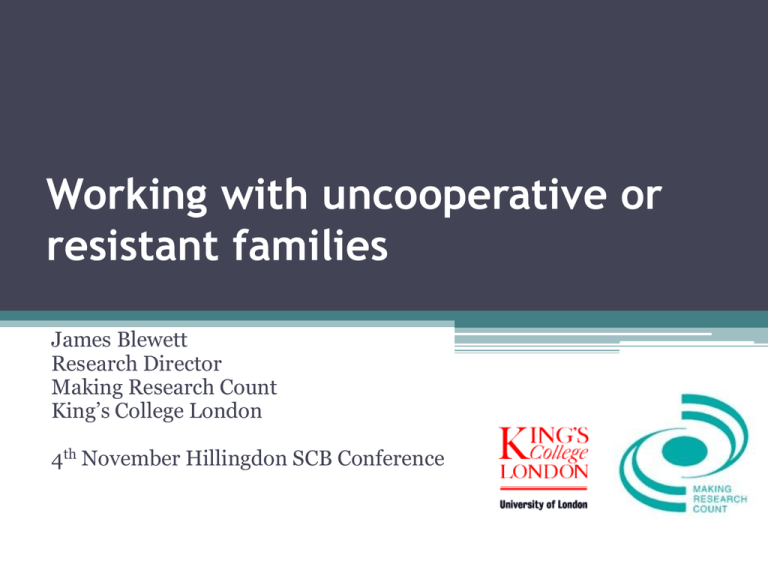
Working with uncooperative or resistant families James Blewett Research Director Making Research Count King’s College London 4th November Hillingdon SCB Conference Language is important • What do we mean by “resistant”—resistant to change, resistant to working with professionals? • “Uncooperative” with whom? How do we measure cooperation? • “Hard to help?” A professional reality • A significant number of families who use children’s social care services do so on an involuntary basis (Balloch, 35%; Thoburn, 17%) • Nevertheless this remains an under researched area. Much of the research has relied on parents and practitioners perceptions/ case records • Therefore it is not always clear whether families were not receiving services or were actively resisting intervention Key issues • It is crucial we understand the meaning/ function and of uncooperative or resistant behaviour • A key component of any assessment is an understanding of the dynamic in the relationship between family members and professionals Families and services • Serious case review research has highlighted how some practitioners can be deflected by family members who are skilled at hiding information, misleading professionals and can be very manipulative (Brandon et al, 2009; 2010) • Some family members can behave in ways that are frightening for professionals However • Families themselves often report difficult experiences with professionals in safeguarding • Research undertaken by the Office of the Children’s Commissioner (June, 2010) echoes much of the research in this area over the last 20 years Potential “stand off” • The potential there is for a ‘stand off’ position between service users and professionals concerning problems, needs and services • Perceived failures of understanding by professionals and disagreement about their needs lay behind the family members’ perception of resistance • Yet similar feelings were common to both the families and the workers: both groups felt they would be prejudged and both could feel defensive from the outset The impact of professional involvement • The traumatic impact upon young people and adults, particularly at the start, of being involved with the child protection system • The fear of the consequences, the sense of suspicion and mistrust and the formality of the processes Barriers to accessing services • The barriers to using services, which the families and young people identified, underline many of the good practice issues addressed in the review • fundamental issues of respect and experience of a double standard in behaviour which reinforced powerlessness and stigma • Good support would be undermined by frequent changes of worker, with consequent changes of plan • Frustration at not getting early access to services On the positive side • There were clear messages about what was wanted from social workers and the value of workers who understood, cared, were knowledgeable and worked openly. • Both families and young people and social workers valued relationship based practice Professional relationships • Complex relationships often reduced to linear processes (Munro, 2010) • The paradox that tight procedural systems can have the unintended consequences of undermine professional expertise and authoritative practice Working with complexity • The meaning of “truth and lies”(Harvey, 2010) • The role and context of the home visit (Ferguson, 2010) • Engaging and sustaining relationships with adolescents The impact of systemic issues • Capacity issues in terms of volume and expertise • “churn” at the front line • Uncertainty and instability • The importance of promoting professional resilience What helps (Fauth et al, 2010, C4EO) 1. A detailed assessment is essential, even if difficulties exist. 2. Practitioners be aware of families with changing and unstable membership. 3. Information should be organised and analysed. 4. Direct Observation Essential in complex cases. 1. A detailed assessment is essential, even if difficulties exist. • Gathering a social history • The importance of it being a multi agency process • Reflecting the views of family members • Understanding the history of professional involvement 2. Practitioners be aware of families with changing and unstable membership. • The role of men and “fathering figures” • Domestic violence and the “absent” father • Extended family can be a source of stress as well as support • The fragility of relationships in stressed family systems 3 Information should be organised and analysed. • Keeping a focus on the child (Significant harm) • Understanding the impact of psycho –social histories of parents • Being aware of environmental factors on the child and family • Being clear about what needs to change, what needs to happen to achieve that change (Brandon et al, 2009) 4 Direct Observation Essential in complex cases. • Crucial part of any assessment • Can be gained from one than more source • Easy to by pass or undertake tokenistically • Needs to be rooted in a framework for understanding parenting and of child development (training need) Conclusions • Acknowledging different “operational perspectives (Cleaver, 1995) Avoiding ultimatums—not seeing compliance as an end in itself • The importance of sustained relationships with families • Not losing sight of the child’s experience • The importance of holding onto the values of partnership and both ethical and sensitive practice
